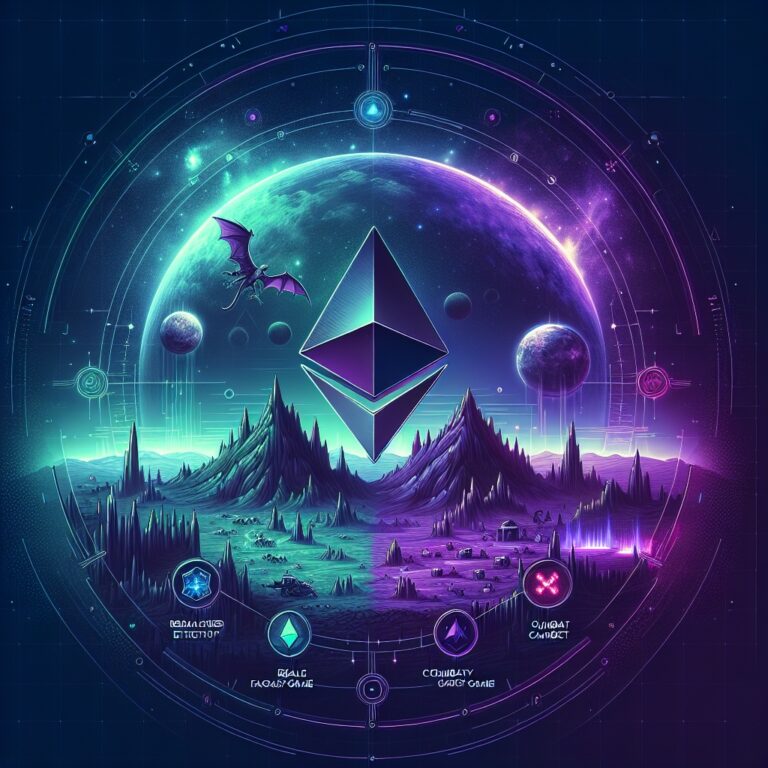The Ethereum gaming ecosystem has hit another snag. Today, May 30, 2025, Realms of Alurya and Wonder Wars—the much-lauded games developed on the Ronin network—have abruptly gone offline. This development casts a shadow over the crypto-gaming landscape, already grappling with similar setbacks.
Game Over for Realms of Alurya and Wonder Wars?
The sudden disappearance of these games has left enthusiasts and investors baffled. According to insiders, financial strains and technical hurdles have been the primary culprits behind the shutdowns. It’s worth noting that Realms of Alurya and Wonder Wars were hailed as potential game-changers within the Ethereum space, offering immersive experiences backed by smart contracts on Ronin.
But here’s the catch: despite their initial promise, both games struggled to maintain a steady user base. The allure of decentralized gaming seemed insufficient to keep the servers buzzing. “The market’s appetite for new blockchain games is voracious, but sustaining interest is another beast altogether,” remarked Clara Jensen, a crypto analyst at ChainBlok Research. She further noted that the games’ reliance on in-game purchases and NFTs didn’t quite hit the mark in attracting long-term engagement. This aligns with broader trends in the crypto space, as detailed in CoinGecko’s report on crypto token failures, which highlights the challenges new projects face in maintaining momentum.
The Broader Implications for Ethereum Gaming
The closure of these games raises larger questions about the viability of the Ethereum-based gaming sector. Ethereum, though a pioneer in decentralized applications, faces stiff competition from newer, more scalable blockchains. The Ronin network, a sidechain specifically designed to mitigate Ethereum’s high gas fees and slow transaction times, was supposed to be a boon for gaming. Yet, even this technological advancement couldn’t stave off financial and operational woes.
James Lewin, a blockchain strategist, commented, “The underlying technology has to match the gameplay experience. If the tech is clunky or expensive, gamers will walk.” This sentiment echoes the broader industry view that while Ethereum remains a stalwart in the crypto world, it must evolve to support the demands of modern gaming. For more on Ethereum’s future direction, see Vitalik Buterin’s vision for Ethereum, which explores potential paths for the platform’s development.
A Look Back—and Forward
Historically, Ethereum’s journey in the gaming sector has been a rollercoaster. From the early days of CryptoKitties—remember that craze?—to the more sophisticated offerings like Axie Infinity, the platform has witnessed both groundbreaking successes and notable failures. However, as we’ve seen with Realms of Alurya and Wonder Wars, initial hype doesn’t always translate to sustained success.
Looking ahead, the crypto community is watching closely. Will Ethereum adapt, or will it cede ground to emerging blockchains like Solana and Avalanche, which are making aggressive moves into the gaming sphere? And what does this mean for the developers who invested time and resources into building on Ethereum?
Questions Left Hanging
The shutdowns of Realms of Alurya and Wonder Wars leave several unanswered questions. For one, how will this impact the Ronin network, which has been a crucial part of Ethereum’s gaming strategy? Moreover, what measures will Ethereum take to prevent similar scenarios in the future?
As of now, the Ethereum gaming sector appears to be at a crossroads. It must navigate the tricky balance between innovation and user satisfaction, all while contending with the rapid pace of blockchain development. Whether it can rise to the challenge remains to be seen. But one thing’s for sure—those in the crypto space will be watching with bated breath.
In the end, the gaming world is a dynamic and unpredictable arena. And, as we’ve learned, not all that glitters in the crypto realm is gold.
Source
This article is based on: Ethereum Games ‘Realms of Alurya’ and ‘Wonder Wars’ Latest to Go Offline
Further Reading
Deepen your understanding with these related articles:
- Bitcoin DeFi will have 300M users, beating Ethereum and Solana: Exec
- Ethereum bulls show interest as traders’ confidence in ETH’s $1.8K level improves
- Franklin Templeton Backs Bitcoin DeFi Push, Citing ‘New Utility’ for Investors

Steve Gregory is a lawyer in the United States who specializes in licensing for cryptocurrency companies and products. Steve began his career as an attorney in 2015 but made the switch to working in cryptocurrency full time shortly after joining the original team at Gemini Trust Company, an early cryptocurrency exchange based in New York City. Steve then joined CEX.io and was able to launch their regulated US-based cryptocurrency. Steve then went on to become the CEO at currency.com when he ran for four years and was able to lead currency.com to being fully acquired in 2025.


